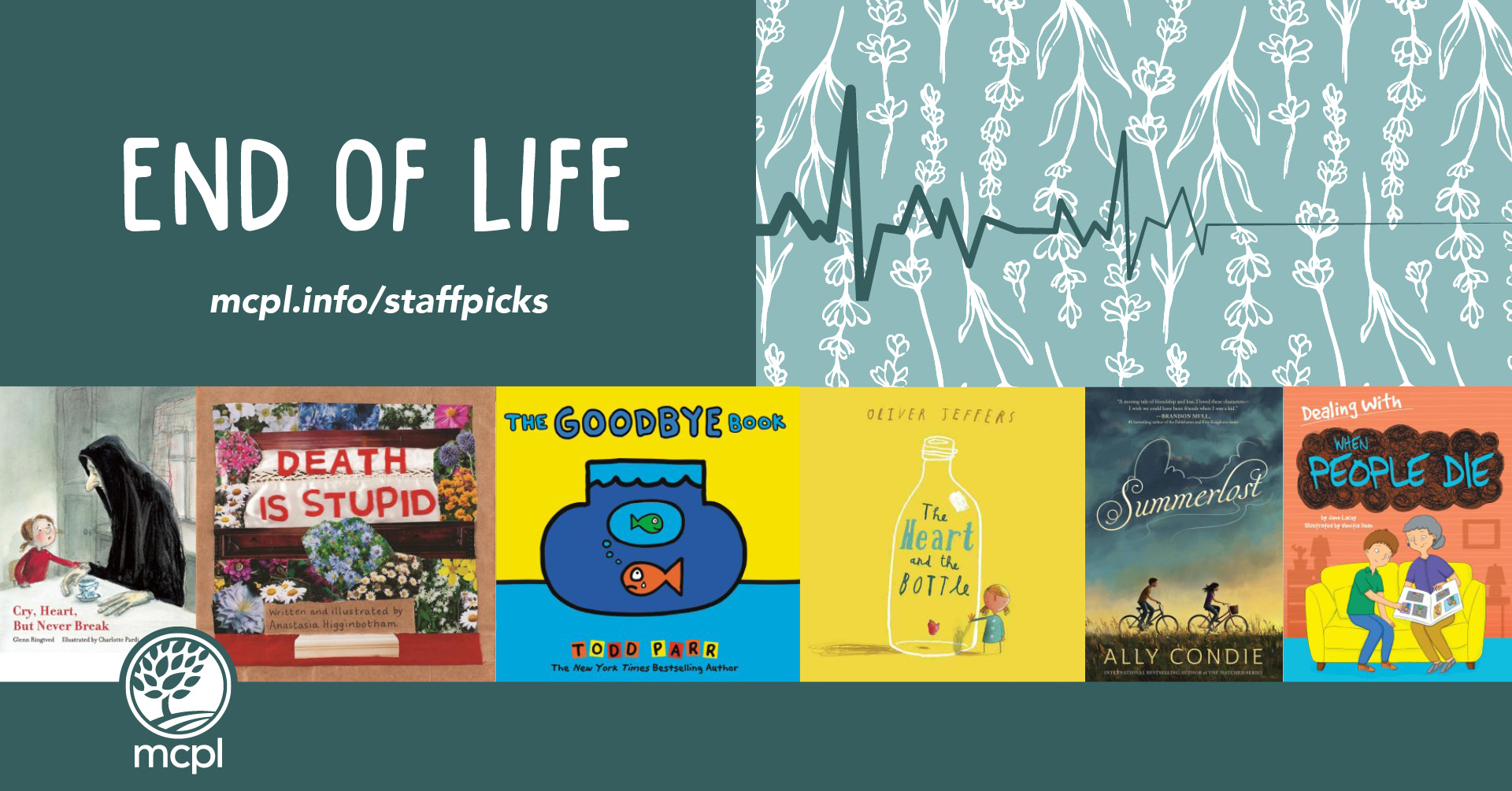Death is a difficult topic for everyone, but especially for children. With this booklist, you can feel prepared to talk about the emotions surrounding the end of life and answer questions to help ease the grief of children.
On the day of his mother's funeral, a young boy conjures the very visitor he needs to see—a gorilla. Recommended for ages 6–9.
After his mother explains why his classmate is not returning to school, she teaches Chester Raccoon how to make a memory. Recommended for ages 3–6.
Aware their grandmother is gravely ill, four siblings realize the value of loss to life and the importance of being able to say goodbye. Recommended for ages 3–6.
A young boy and his grandfather share a love of painting, but after his grandfather dies the boy isn't sure he will ever want to paint again. When a girl in the village asks him to teach her to paint, the boy realizes that painting is a way to keep his grandfather's memory and love alive. Recommended for ages 3–6.
This book walks through the emotions and confusion it is common for young people to experience when someone dies, and describes some of the ways to celebrate love and life. Recommended for ages 6–9.
Illustrations and brief text relate how a person might feel when they lose someone they love. Recommended for ages 3–6.
After safeguarding her heart in a bottle hung around her neck, a girl finds the bottle growing heavier and her interest in things around her becoming smaller. Recommended for ages 3–6.
When 3-year-old Alex's father dies suddenly of a heart attack, his mother explains what happened and that his father can never come back in words that Alex can understand. Recommended for ages 3–6.
One year after her mum's death, Luna struggles to understand why her mum took her own life. Her dad explains what happened, and together they talk about all the happy memories they have of her mum. Includes a guide for discussing death by suicide with children. Recommended for ages 6–9.
Grieving over the death of a special person, a young child creates a memory box to keep memories of their loved one. The book includes a guide for parents with information from a Christian perspective. Recommended for ages 3–6.
A young boy misses his mother when she has died, but his family talks about their memories and love of her. Recommended for ages 3–6.
Dying is hard work, for the old and especially the young. Many people help when a person dies, including medical staff, clergy, friends, and family members. Recommended for ages 6–9.
With the help of her neighbor Mrs. Cooper, Samantha Jane is able to talk about how sad she is since her father died, and then she begins to feel better. Recommended for ages 3–6.
George loves spending Saturdays with his grandmother, Stella. One day, Stella is gone and George is ready to cancel Saturdays—until he finds a way to honor the memories of his beloved grandmother. Recommended for ages 3–6.
It can be difficult to know how to talk to about death. This book features diverse families and cultural traditions and introduces concepts of life after death and reincarnation. Recommended for ages 3–6.
Zora loves her Aunt Bea and the stories she tells about their family members. As Aunt Bea grows increasingly sick, the stories become less frequent, until they stop all together. After Aunt Bea's passing, Zora realizes that Aunt Bea was preparing her to be the next story keeper. Recommended for ages 4–8.
Birdie Briggs loves birds; they bring her comfort when she thinks about her dad, a firefighter who was killed in the line of duty. Recommended for ages 8–12.
Following the sudden deaths of her father and autistic younger brother, Cedar Lee spends the summer working at a Shakespearean theater festival, making a new friend, and coming to terms with her grief. Recommended for ages 8–12.
Readers will learn about the best ways to handle death through the help of relatable stories and practical advice. Recommended for ages 8–12.
Collin struggles with anxiety and grief after the death of his mother, and his father's resulting hoarding problems. Told in verse with pages from Collin's worse-case scenarios notebook interspersed. Recommended for ages 8–12.

